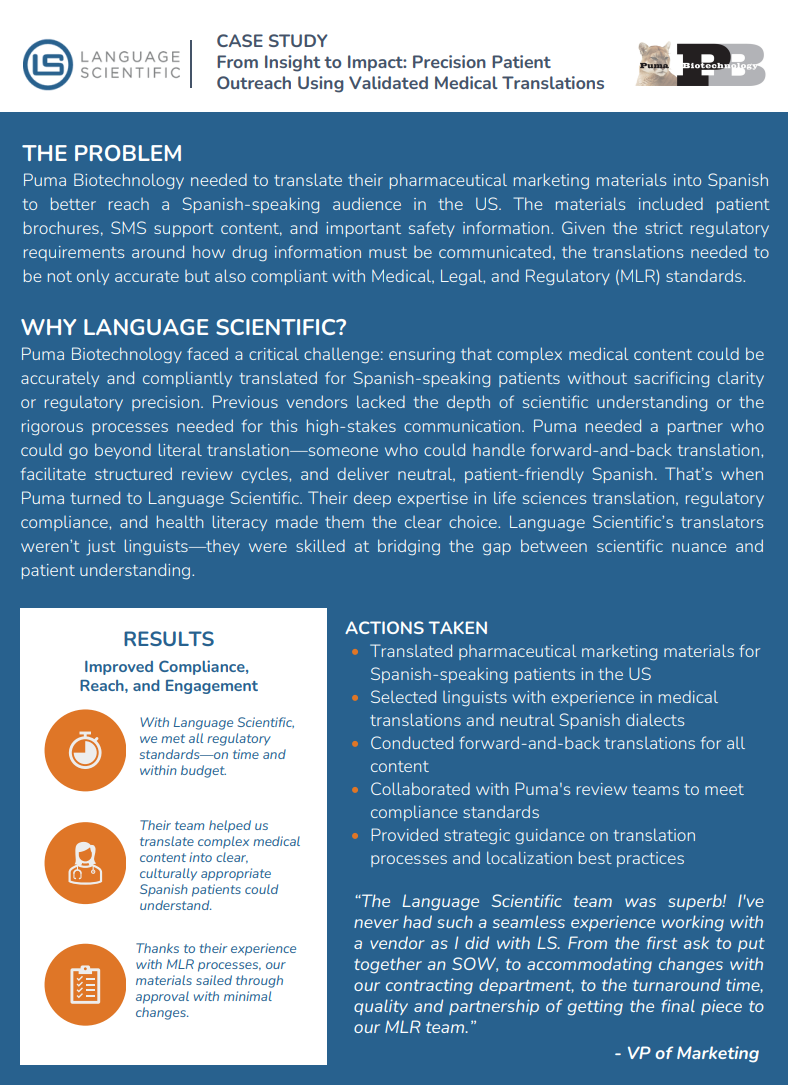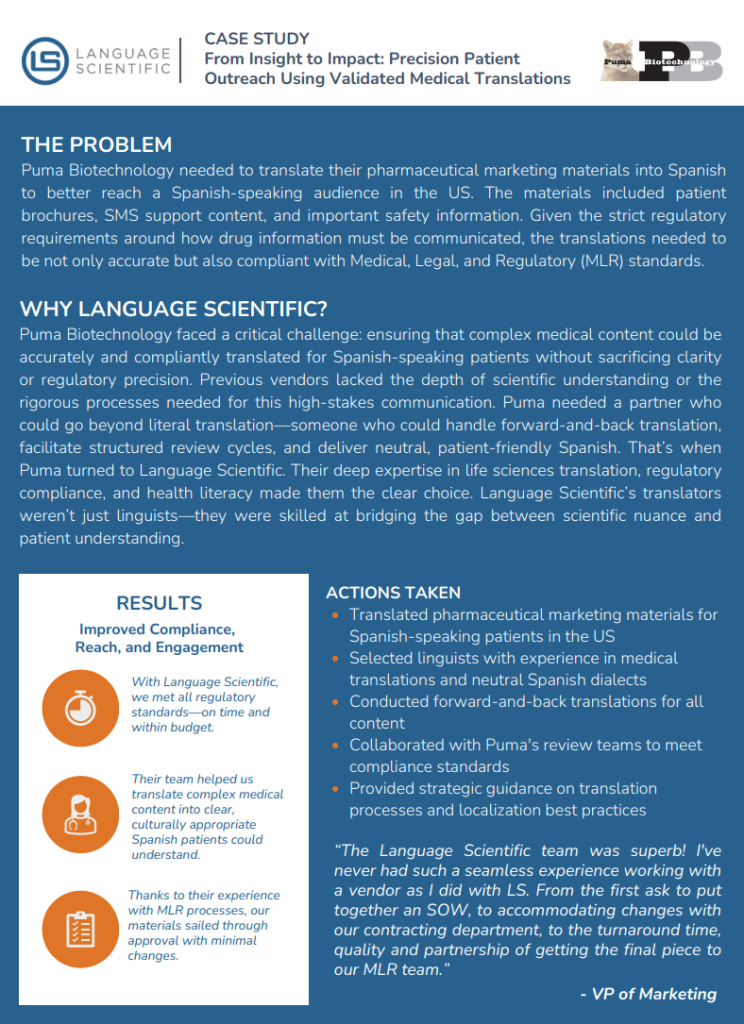Introduction It might seem obvious, but the critical difference between regular content and technical content
Cognitive Debriefing: Series Takeaways Building on our previous analysis, we now turn to the final
Following the essential preparatory steps outlined in our last cognitive debriefing discussion, the focus now
Building upon our previous discussion on recruitment strategies for Cognitive Debriefing (CD), we now transition
Best Practices For Conducting Cognitive Debriefing Following our exploration of the importance of Cognitive Debriefing
Building on the foundational understanding of Cognitive Debriefing provided in the previous article, we delve
5 Keys to Transcreation Success When tailoring your content to reach a global audience, sometimes
6 Major Types of Interpreting As stated in a previous blog (What is the Difference
What Is Linguistic Validation? If you do not know what it means, linguistic validation and
If you are visiting our blog this week to read about Cognitive Debriefing, please check
Cognitive Debriefing Explained In an earlier blog (What is Linguistic Validation?) we discussed what is
Multimedia Localization: A Brief Overview Multimedia localization projects can have an immediate impact on helping
6 Reasons Why Desktop Publishing Is Important For Translations Perhaps you have sent a translation
Translating Marketing Content: 6 Key Considerations You’ve spent time and resources developing your brand, creating
Fuzzy Matching Makes Translation Cents Fuzzy matching is a great way to save both time
4 Ways A Terminology Database Can Optimize Your Translation Large, highly technical translation and localization
Have you ever stared blankly at a page containing scientific, technical or medical text? These
A common question that is often asked of our team is “Why do I need
Language Scientific, Inc.® is a privately held corporation headquartered in Needham, Massachusetts.
Language Scientific, 100 Crescent Rd Needham, MA 02494
+1 617-621-0940
info@languagescientific.com



See how Puma Biotechnology improved compliance, engagement, and clarity using validated Spanish medical translations.